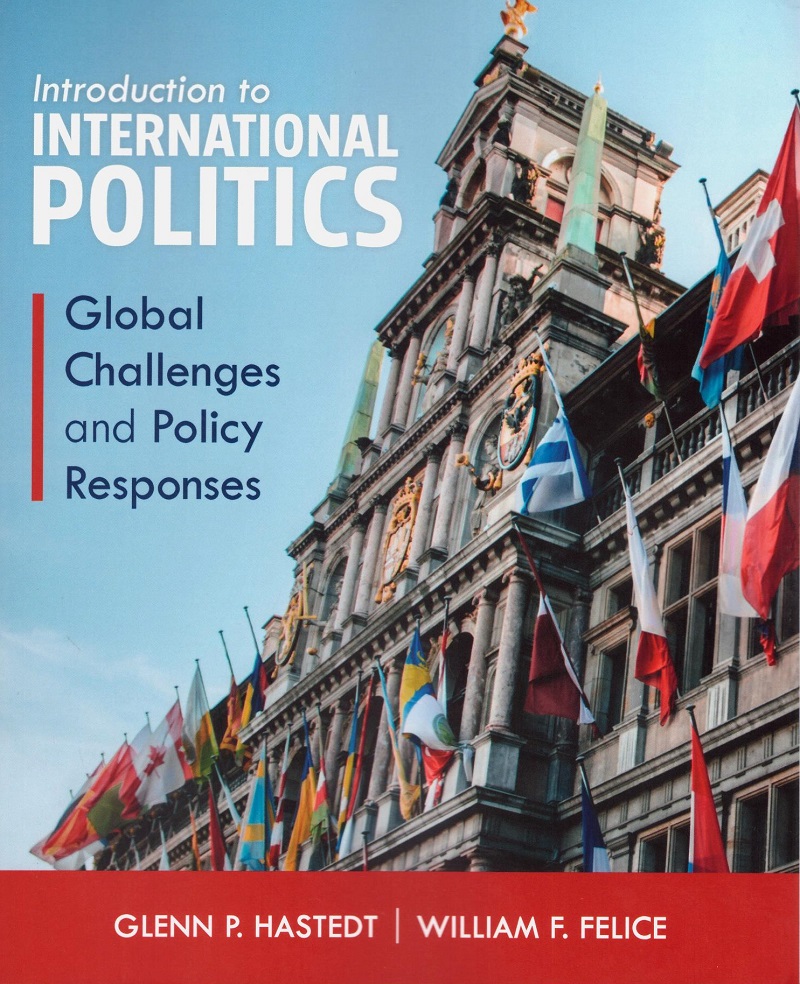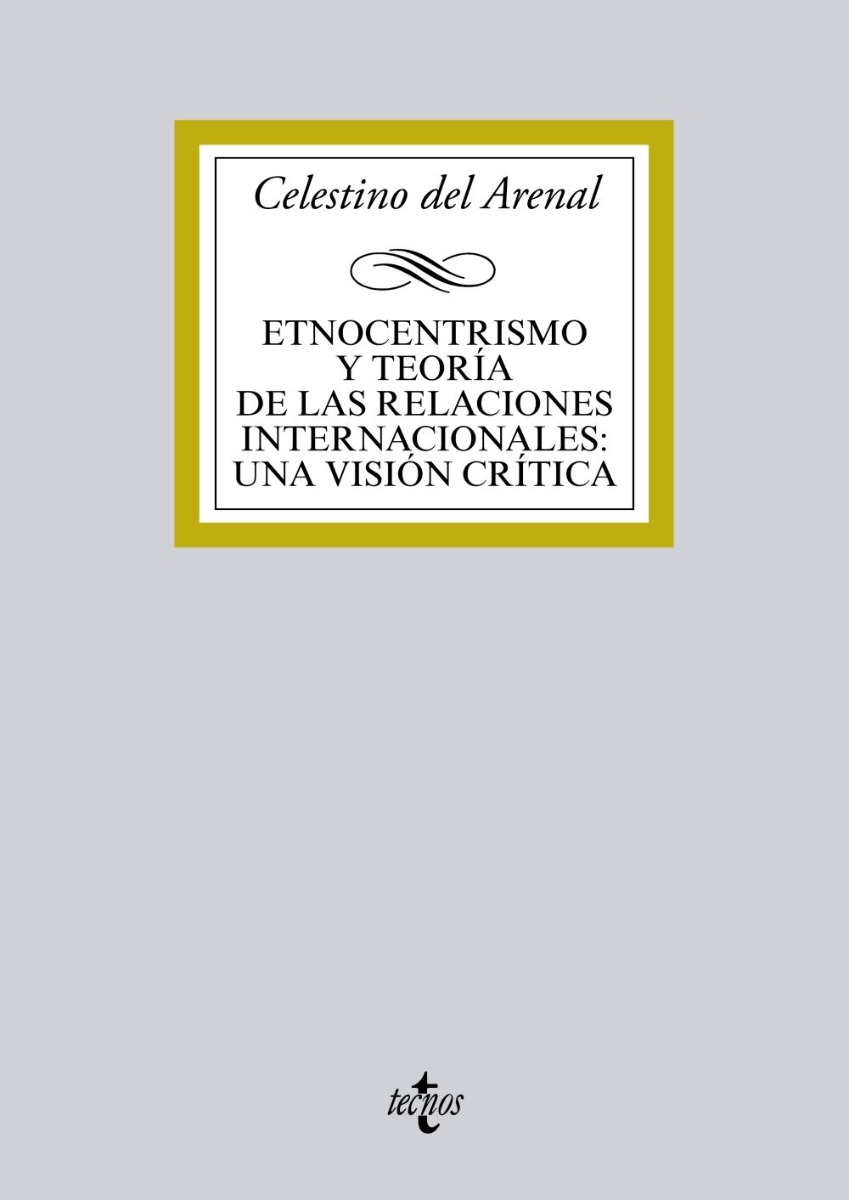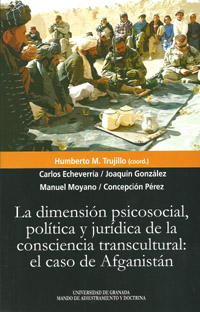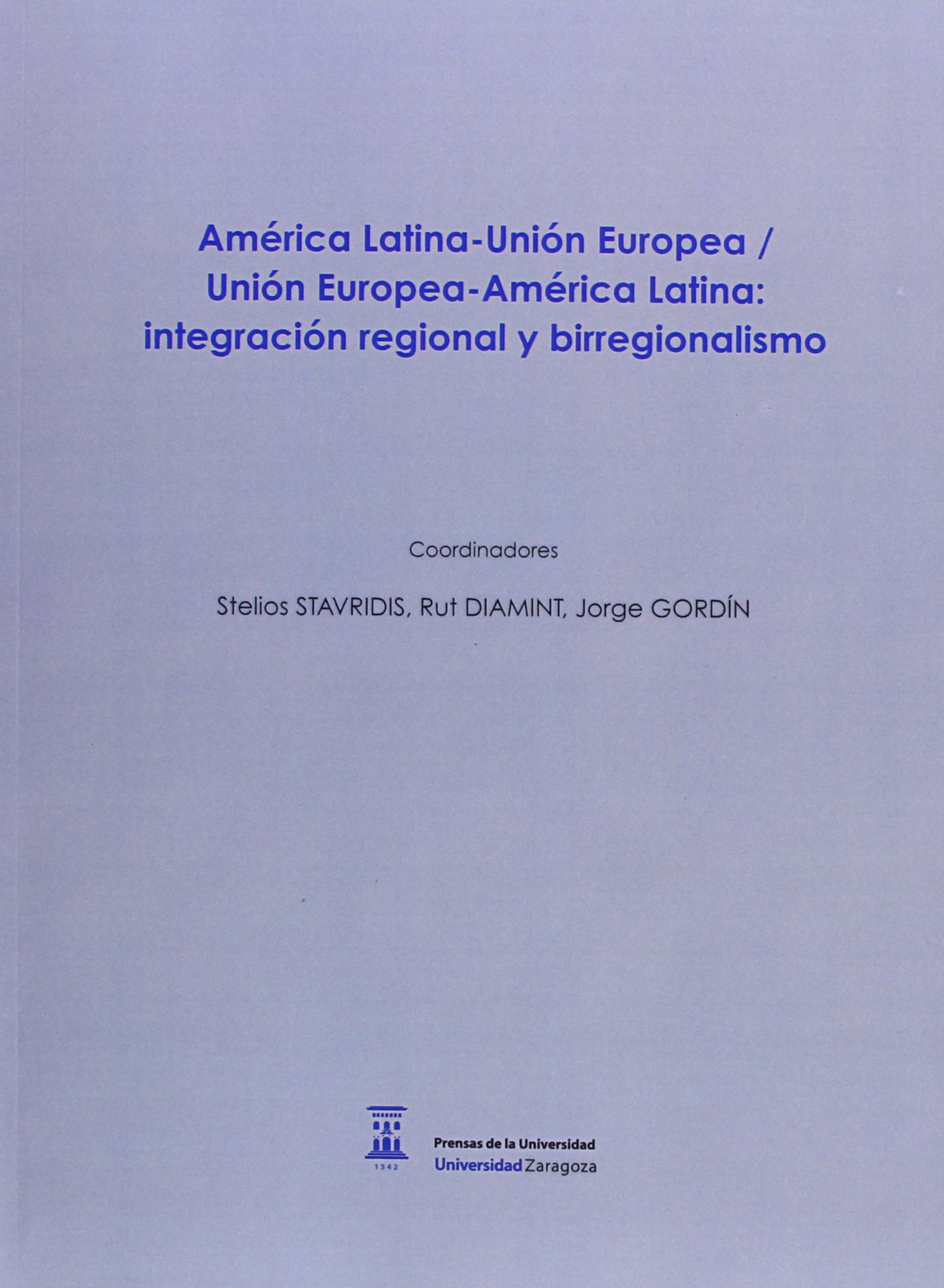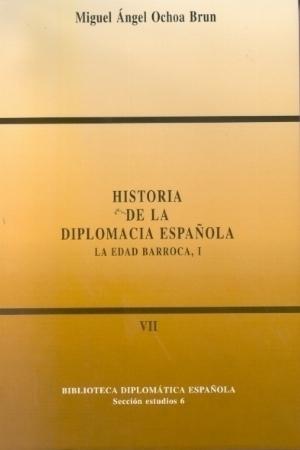Introduction to international politics. Global challenges and policy responses
Introduction to International Politics makes systematic linkages between theory and policy that do not ignore or slight the conceptual discussion of international relations or simply chase newspaper headlines. Chapters are organized around “Global Challenges and Policy Responses.” The challenges are presented as concrete policy problems relevant to the theme of the chapter. The discussion of responses emphasize concrete actions taken or proposed by international organizations, the foreign policies of key states, international agreements, and actions taken by NGOs. Theoretical insights are used to help students understand challenges, think about solutions, and learn from the past.
Based on a combined fifty years of classroom teaching, Hastedt and Felice possess the uncanny ability to boil down complex ideas and make them meaningful for students. Written in a style that is direct and accessible, Introduction to International Politics offers a concise foundation for any introductory-level student taking an international relations or world politics course.
The text offers students a full suite of pedagogical features and learning aids, including a box program consisting of Policy Spotlights, Theory Spotlights, and Regional Spotlights. Each chapter opens with a Historical Perspective case study of a policy challenge, and closes with a related Contemporary Perspectivecase study of a similar challenge. Chapter study aids include learning objective at the outset, with a list of key terms and critical thinking questions provided at the end.
A full suite of teaching and learning ancillaries include a companion website with self-study quizzes, a test bank, testing software, PowerPoint lecture slides that are WCAG 2.0-compliant, and an E-book with links to the companion website.
List of Figures, Tables, and Maps
Preface
About the Authors
Chapter 1: Thinking Critically About International Politics
Making Sense of International Politics
Korea Then and Now
Learning from Personal Experience
Learning from History
Learning from Theory
Using Challenges and Responses to Make Sense of International Politics
Summary/ Key Terms/ Critical Thinking Questions
Chapter 2: The Theory Challenge
Historical Perspective: The Fall of the Berlin Wall
Realism
Liberalism
Theory Spotlight: Prisoner’s Dilemma
Economic Structuralism
Constructivism
Feminism
Applying Theory to the Arctic
Policy Spotlight: Fights, Games, Debates
Regional Spotlight: The Third Pole
A Contemporary Perspective: The Ukraine
Summary/ Key Terms/ Critical Thinking Questions
Chapter 3: The Sovereignty Challenge: Who Is In Charge?
Historical Perspective: The Common Market to the European Union States
Policy Spotlight: When is a State a State?
International Organizations
Theory Spotlight: Integration Theory
Regional Spotlight: Association of Southeast Asian Nations (ASEAN)
Non-state Actors
Contemporary Perspective: Leaving the EU—Grexit and Brexit
Looking to the Future
Summary/ Key Terms/ Critical Thinking Questions
Chapter 4: The Values Challenge: Deciding What to Do
Historical Perspective: The Nansen Passport
International Politics Values
Theory Spotlight: The Global Community and Global Justice
A Two Level Game
Societal Influences on Foreign Policy Making
Global Influences on Foreign Policy Making
The Pathway from Ideas to Policy
Policy Spotlight: The Democratic Peace
Contemporary Perspective: The Refugee Flow into Europe
Regional Spotlight: Internally Displaced People in Africa
Looking to the Future
Summary/ Key Terms/ Critical Thinking Questions
Chapter 5: The Power Challenge: The Ability to Act
Historical Perspective: The Case for Strategic Bombing
Power and International Politics
Policy Spotlight: Why Strong States Lose War
Theory Spotlight: Measuring Soft Power
The Challenge of Using Power
Cyber Power
Instruments of Power
Regional Spotlight: China’s Power
Contemporary Perspective: Armed Drones
Looking to the Future
Summary/ Key Terms/ Critical Thinking Questions
Chapter 6: The Cooperation Challenge: Working Together
Historical Perspective: Ebola in 1976 and 2000
The Dynamics of International Cooperation
Policy Spotlight: Negotiating with the Enemy
Alliances
Diplomacy
Theory Spotlight: Regimes and Regime Complexes
International Law
Regional Spotlight: The Oceans
Contemporary Perspective: Ebola in 2013
Looking to the Future
Summary/ Key Terms/ Critical Thinking Questions
Chapter 7: The Security Challenge
Historical Context: The Arab—Israeli Conflict
Peace and War/War and Peace
Theory Spotlight: Peace Studies
21st Century Wars
Regional Spotlight: The Colombian Civil War
Peace Operations
Nuclear Stability
Policy Spotlight: A New Arms Race?
Contemporary Perspective: Syria
Looking into the Future
Summary/ Key Terms/ Critical Thinking Questions
Chapter 8: Economic Challenges: Who Is in Charge of the Global Economy?
Historical Perspective: The North American Free Trade Agreement, 1994
The Challenge of Economic Globalization
Theories of International Political Economy and Economic Globalization
Regional Spotlight: China’s Belt and Road Initiative
Theory Spotlight: Feminist International Political Economy
From the UN’s Millennium Development Goals to the Sustainable Development Goals
Policy Spotlight: Eliminating Poverty in Mexico and Brazil
The United Nations 2030 Agenda for Sustainable Development
Contemporary Perspective: The North American Free Trade Agreement, 2019
Looking to the Future: Controlling Speculative Capital and Excessive Military Spending
Summary/ Key Terms/ Critical Thinking Questions
Chapter 9: Human Rights Challenges: Protecting Human Dignity
Historical Perspective: The Nuremberg War Crimes Tribunal, 1945-1946
The Global Roots of Human Rights
From Westphalia to the U.N. Human Rights System
Regional Spotlight: Genocide or Ethnic Cleansing in Myanmar? Is there a difference or does it matter?
Policy Spotlight: The Global Struggle for LGBT Rights
Contemporary Perspective: The International Criminal Court, 1998-2019
Looking to the Future: The United States, China and the U.N. Human Rights System
Theory Spotlight: Cultural Relativism versus Universality
Summary / Key Terms/ Critical Thinking Questions
Chapter 10: Global Environmental Challenges: The Global Commons
Historical Perspective: Global Environmental Governance 1870-1992
Global Environmental Challenges: Climate Change, Overfishing, Species Extinction
Policy Spotlight: Is a Carbon Tax a Viable Policy Option?
Regional Spotlight: The Antarctica Treaty Regime
Theory Spotlight: Human Rights & Environment
Contemporary Perspective: Global Environmental Governance, 2002-2019
Looking to the Future: The Potential Environmental Impact of Trade and the Precautionary Principle
Summary / Key Terms/ Critical Thinking Questions
Chapter 11: Looking Forward: New Policy Challenges and Responses
Trade Wars
Creating Images of the Future
Global Trends 2035
Future Foundations of International Politics
New Actors in the Future International System
New Traditional Challenges
New Global Challenges
Summary/ Key Terms/ Critical Thinking Questions
Glossary
Notes
Index
Chaïm Perelman, (Varsovia, 20 de mayo de 1912 – Bruselas. 22 de enero de 1984). Retórico, lógico y filósofo del Derecho belga de origen polaco. Creó la nueva retórica, una de las principales teorías sobre argumentación del siglo XX.
Nacido en Polonia, su familia emigró a Amberes (Bélgica) en 1925. Estudió en la Universidad Libre de Bruselas, donde permanecería casi toda su vida también como profesor. Se doctoró en Derecho en 1934, y logró otro doctorado después sosteniendo una tesis sobre el filósofo, lógico y matemático Gottlob Frege en 1938. En ese mismo años es aprobado como lector (conferencista) en la Facultad de Filosofía y Letras de la Universidad Libre de Bruselas a pasar de ser entonces el profesor más joven en toda la historia de dicha universidad, dentro de la cual terminaría jubilándose en 1978.

